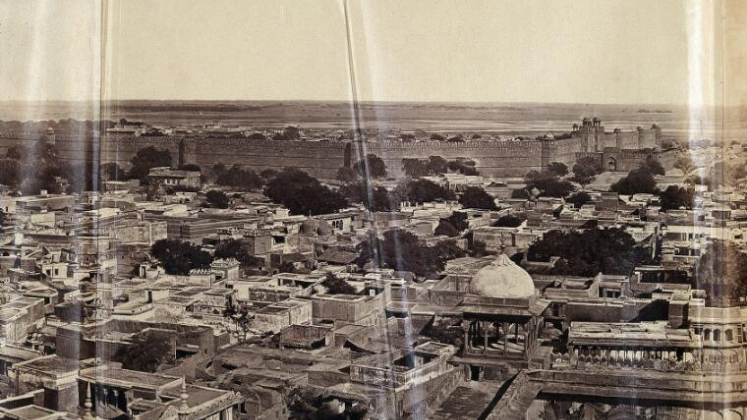Professor Sir Peter Hall died in July 2014. Active as a scholar, policy analyst and future-thinker almost to the end, his most recent book – Good Cities, Better Lives – appeared earlier that year, alongside a festschrift edited by his colleagues – The Planning Imagination. Here Ron Johnston reviews those two books as a contribution to appreciating this amazingly prolific – in every sense – scholar’s contributions to British academic and public life.
 In a career lasting almost sixty years, Peter Hall contributed massively to the study of urbanism in general and the UK in particular. This was achieved through a combination of rigorous academic analysis of both urbanisation trends and the planning policies and mechanisms designed to modify them, plus public commentary on a wide range of related issues containing a continuing flow of ideas of how to plan for more liveable places and better lives, for all.
In a career lasting almost sixty years, Peter Hall contributed massively to the study of urbanism in general and the UK in particular. This was achieved through a combination of rigorous academic analysis of both urbanisation trends and the planning policies and mechanisms designed to modify them, plus public commentary on a wide range of related issues containing a continuing flow of ideas of how to plan for more liveable places and better lives, for all.
Good Cities, Better Lives: How Europe Discovered the Lost Art of Urbanism brings all of those elements of his career together, in a presentation that is both accessible to a wide range of readers and offers clear blueprints for ways forward. He begins by setting out five challenges currently facing the UK: rebalancing the urban economies – especially north vs south; big cities versus smaller places; building enough new homes, of the right types in the right places; improving transport, especially public transport infrastructure; sustainable development; and ‘fixing broken machinery’ (i.e. the planning system). All have several separate sub-challenges, themselves substantial – Peter is not complacent about where we are compared to where we want/ought to be.
Having identified the challenges, the book’s second half seeks models that can be deployed to tackle them, through a series of European case studies where relevant policies have been successfully introduced. Germany provides examples of how regionally-distributed economic growth has been boosted; the Netherlands is building sustainable, attractive suburbs; France has used transport investment to redevelop cities; Denmark and Sweden show how to conserve resources; and Freiburg is a paradigm of ‘The city that did it all’. These are followed by a long chapter on ‘Learning the lessons’. Answering the ‘what needs to be done?’ questions is relatively straightforward, he claims; implementing the answers will be less easy, but he encapsulates the needed changes in eight points, most of which can be brought together in a single strategy – ‘decentralise (real) power’ to the city regions. And another book in the press – a revised edition of his Sociable Cities (the first edition written with Colin Ward) – will set out how this can be done for three of England’s major urban sub-regions: Mercia (focused on Northamptonshire); Anglia (Cambridge to Peterborough); and Kent.

 The Planning Imagination: Peter Hall and the Study of Urban and Regional Planning comprises 19 chapters based on presentations at a two-day seminar convened to mark Peter’s 80th birthday. After a brief introduction, these are grouped under five headings that encapsulate most of his writing and activity: History of cities and planning; London’s growth and development; Spatial planning; Connectivity and mobility; and Globalized urbanization. Some focus on general themes, others on a particular piece of work – such as his magnum opus Cities in Civilization. All illustrate the depth as well as breadth of Peter’s work, and how he used painstakingly-assembled empirical evidence both to sustain his research conclusions and to underpin many of his prognoses. They also show how far-sighted he was in foretelling the future – he foresaw Skype, the internet, touch screens and iPhones in 1971 (p.253)!
The Planning Imagination: Peter Hall and the Study of Urban and Regional Planning comprises 19 chapters based on presentations at a two-day seminar convened to mark Peter’s 80th birthday. After a brief introduction, these are grouped under five headings that encapsulate most of his writing and activity: History of cities and planning; London’s growth and development; Spatial planning; Connectivity and mobility; and Globalized urbanization. Some focus on general themes, others on a particular piece of work – such as his magnum opus Cities in Civilization. All illustrate the depth as well as breadth of Peter’s work, and how he used painstakingly-assembled empirical evidence both to sustain his research conclusions and to underpin many of his prognoses. They also show how far-sighted he was in foretelling the future – he foresaw Skype, the internet, touch screens and iPhones in 1971 (p.253)!
The book’s final chapter is Peter’s own ‘Apologia pro Vita Sua’ – much too brief in just 14 pages to more than encapsulate the life of somebody who estimates that he wrote some 2,000 articles (there is a bibliography of his ‘formal’ academic publications – more than 50 books and 150 chapters/journal articles) and travelled 70,000 miles a year, but a fascinating insight into what he did and why. He identified early the growing importance of multi-polar metropolises in contemporary urbanisation and established how the failures of British planning policies meant that these places were neither as efficient nor as liveable-in as they could be. He sought lessons on how to improve them from other places – past and present – and sketched out better futures that others could ensure, with the right will and tools.
The urban Britain that Peter encountered as a child and young man was shabby, inefficient and uncoordinated with much of its infrastructure obsolescent. He did much in his career not only to understand why that was – bringing substantial historical depth to his appreciation – but also to change it, through an understanding of the strengths and weaknesses of the various planning systems implemented since 1945 and his many suggestions – some implemented – for their improvement. He continued pursuing that goal to the end, as illustrated by Good Cities, Better Lives. These two books are a superb tribute to an influential life lived in the academic and public policy fast lanes.
Good Cities, Better Lives: How Europe Discovered the Lost Art of Urbanism. Peter Hall, with contributions from Nicholas Falk. Routledge. 2014.
The Planning Imagination: Peter Hall and the Study of Urban and Regional Planning. Mark Tewdwr Jones, Nicholas A. Phelps and Robert Freestone (editors). Routledge. 2014.
Ron Johnston is a professor in the School of Geographical Sciences at the University of Bristol; his most recent contributions to electoral studies include (with Charles Pattie) Money and Electoral Politics (The Policy Press, Bristol, 2014) and (with David Rossiter and Charles Pattie) Equality, Community and Continuity: Reviewing the UK Rules for Constituency Distributions (available at http://www.mcdougall.org.uk/publications/papers.html). Read more reviews by Ron.








1 Comments